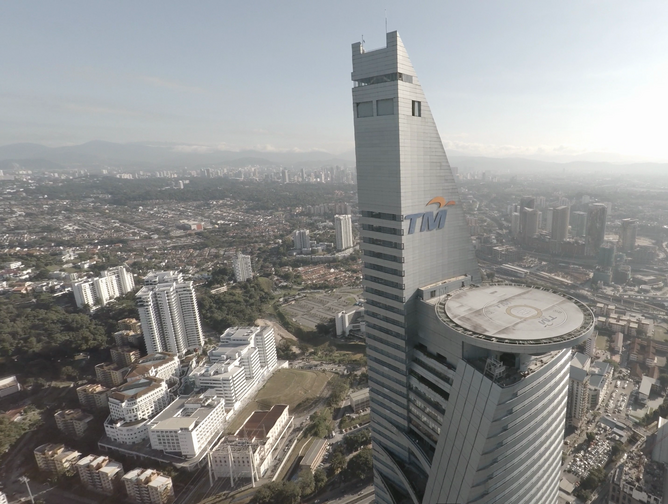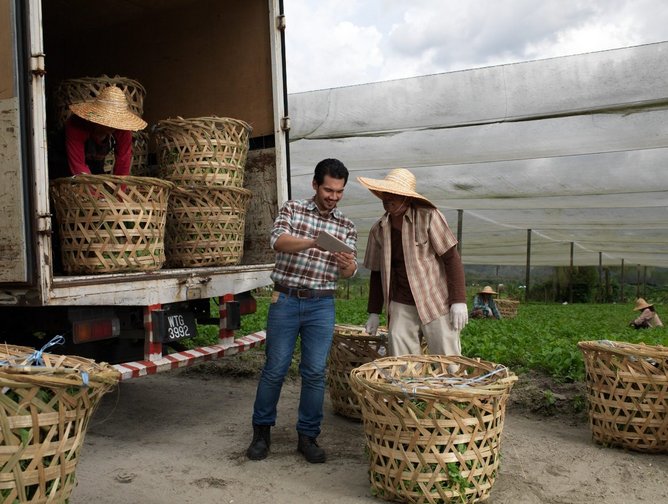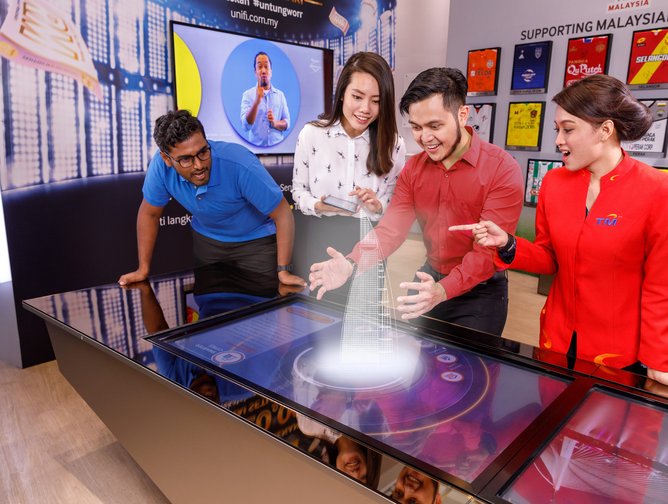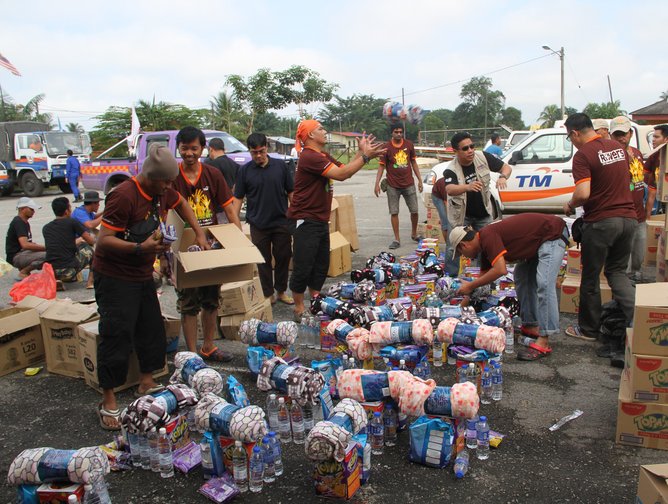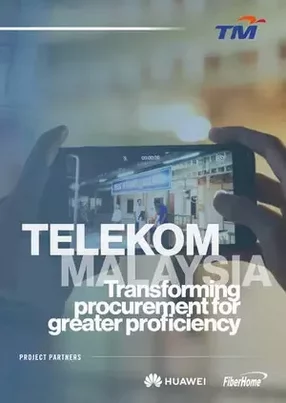Telekom Malaysia: Redefining procurement for supply chain success
Historically, procurement has always been perceived as a support function. Over the last decade however, there has been a considerable shift as more and more businesses around the world are investing heavily to create greater alignment between procurement and the strategic direction of the company.
For Telekom Malaysia Berhad (TM), Malaysia’s Convergence Champion, procurement has evolved far beyond its traditional function and is now pivotal in the success and future growth of the business.
“Procurement has indeed played a pivotal role in ensuring speed to market, improving customer stickiness via quality products and services while also assuring supply sustainability to support all year-round dynamic business needs and strengthening supplier relationships to deliver shared value to the organisation,” says Mohamad Mohamad Zain, Chief Procurement Officer, TM.
With a career spanning over 20 years, working in a number of roles within TM from insurance management to enterprise risk management, Mohamad has seen first-hand the changing role of procurement and feels his experience finely positions him to lead TM’s transformation journey.
Procurement was identified as one of the key pillars to the company’s Performance Improvement Plan (PIP) 3.0, which focuses on delivering value via total cost ownership savings, increased speed of procurement process to support speed to market and be more responsive to the dynamic business needs across the wider TM Group.
“The Group Procurement’s vision is to optimise productivity,” says Mohamad, “while also building an organisation that has a sustainable competitive advantage towards “Procurement Made Easier” with stable, effective and efficient sources of supply.”
Through his role, Mohamad is part of the senior management committee, something he feels enables him to change the perspective of procurement. One of the key changes that he has implemented, in order to measure the success of this strategic transformation, is the addition of optimising the supply chain and procurement management as the Group’s key performance indicators.
What this does is present a challenge that Mohamad must continue to overcome; continue to demonstrate to stakeholders the true value of the new procurement model in contributing positively to the Group’s profitability.
“I need to continue to show how procurement can assist our marketing team on speed to market with competitive product and services,” he says. “This can then ensure that our suppliers can fully apprise on the overall objective of our new procurement model.”
TM’s transformation journey began in 2013, overseen by Mohamad’s predecessor. Mohamad took over in 2015 and immediately worked across the Group on understanding the already identified gaps in the Company’s basic procurement function.
These gaps allowed TM to anchor its transformation with three key pillars; value creation and expansion, responsive to business dynamics and speed in procurement process and execution.
The pillars will enable TM to implement a best-in-class procurement model, but any transformation journey is not without challenge.
For Mohamad, he views challenge as an opportunity to continue pushing forward.
“I look across our transformation to date, the results that we can point to, and it gives me the additional adrenalin I need to keep on pushing for better results,” he says. “Whilst we have successfully established a cross functional category management team, improved governance to allow speed of procurement approval, and strengthened supplier relationship management, there is still room for improvement, including embracing technology.”
The transformation by its very nature is defined by improving performance. Mohamad’s sentiment of continuous learning is shared across the Group. Four years into this journey and TM can already point to RM1.0 billion (USD250 million) TCO savings through the expansion of value creation, as well as expanding its strategic vendor portfolio and improving overall governance and control in order to achieve faster procurement process.
But Mohamad is a firm believer in not standing still and is already looking at the next step in order to continue to improve, with technology and embracing digital procurement a clear goal.
While Mohamad looks to the future of technology, that’s not to suggest that technology hasn’t played a defining role in this transformational journey.
“To support the procurement transformation, technology has and will be fundamental in the delivery of speed and efficiency in our processes,” he says. “As such, we have embarked on PINTAR project, designed to provide data analytics on spend analysis for our category managers.”
PINTAR, or the Procurement Institutionalisation of Technology Applications and Resources, specifically enables greater efficiencies across spend analysis, online tender and quotation, supplier performance management and contract management and repository, amongst other key areas.
With technology redefining industries all around the world this brings upon a challenge that is not unique. The global technology conversation is defined by Artificial Intelligence, Automation, Big Data, but are these terms simply turning into buzzwords? What work does Mohamad and TM do to ensure that the Company is implementing the right technologies for the right reasons and not just following trends?
“As a technology company, technology and digitalisation have been part of our business DNA from the very start,” says Mohamad.
“TM has its own R&D team, Network & IT Technical Committee and Chief Digital Officer that continue to provide advisory across the Group on new technology and digitalisation plan. At the same time, we also benchmark with peers across the globe and in some instances securing advice from our key suppliers who have implemented robust supply chain management system.”
See also:
- Aflac: A digital leader in Japanese insurance
- Interview: Inside Coventry University’s digital transformation
- Creating and building the innovative technological airports of the modern world
As a supply chain and procurement function, having a strong supplier network is crucial. In the journey of implementing a new procurement model, that supplier network proves more vital than ever.
Mohamad admits that a transformation of this scope is not one that can be completed alone, with the strengthening of supplier relationships in itself a core pillar of the journey. TM has redefined how it approaches supplier and vendor management, with expanded collaboration with mega suppliers (foreign and domestic) and those local vendors nurtured via its Bumiputera-Vendor Development Programme (BVDP).
To date, we have over 9,200 vendors registered with us with close to 4,400 Bumiputera vendors. At TM, we have a robust and transparent procurement process; and we adhere to industry’s best practices. We are committed to maintaining the highest degree of integrity, transparency and accountability in the conduct of our business and operations. At least 42% of our projects are based on tenders and we also award projects that require economies of scale to our long term and strategic partners.
The BVDP is designed to stimulate the activity and involvement of local suppliers across Malaysia in tenders and other procurement activities. These activities can be stand-alone or through collaborating with foreign partners, with the goal of sharing technology and knowledge to the local suppliers in order to develop the capabilities of the local supplier network.
“This programme will not only support the capability building of local vendors who will then be able to compete for regional business needs through tenders,” says Mohamad. “For TM, based on our BVDP framework, the entry level would be the Entrepreneur Development (ED) and Blue Lane (ED programme specific for ICT-based or start-up technology company companies) levels. Once the vendors show improvement in their processes and capabilities, they will then be upgraded to Strategic Partners, and then elevated to become a Corporate Champion and finally to a National Champion. This journey may take three to five years.”
TM has already amassed a strong portfolio of both foreign and local strategic suppliers such as Huawei, Fiberhome, Nokia as well as Opcom, Dura Mine and Lite Cable.
As the title implies, this procurement journey is one of continuous improvement. Procurement as a function will continue to change and evolve and TM must continue to evolve with it in order to continue to deliver success.
“The future will see TM begin to better embrace new technology, organisational and process redesign, and continue to push for cultural change in supporting this changing space,” says Mohamad.
“We are expecting the Industrial Revolution 4.0, and so the future of procurement will largely dependent on technology, robotic and Internet of Things (IoT). Through our journey, we are laying the foundations in order to be ready for this future.”
